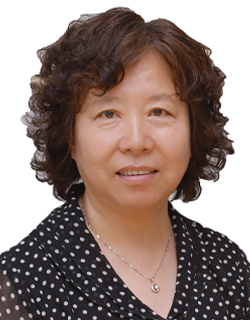As the Chinese and world economies become more intertwined, an increasing number of Chinese companies and individuals are, when it comes to registering trademarks, considering the selection of English-language trademarks, or trademarks which combine both English and Chinese. Foreign companies that are investing or doing business in China show an even stronger preference for using foreign language trademarks. However, the review of English-language trademarks by the Trademark Office are extremely stringent.

Partner
Run Ming Law Office
The question therefore arises of how to select an appropriate English-language trademark that will pass the review.
Prohibitive provisions
Article 10 of the PRC Trademark Law specifies which types of sign may not be used as trademarks. Such provisions are, however, quite general and abstract, making it difficult for domestic and foreign enterprises to understand them.
Based on our experience and in the light of the provisions of article 10, attention should be paid to the following points when applying to register an English-language trademark:
- the trademark may not be identical or similar to the name of a country or an international organization, for example France or the United Nations, or the Red Cross or the Red Crescent, unless the authorization or consent of the country or international organization involved has been secured, or the trademark would not be likely to mislead the public;
- the trademark may not contain words that are ethnically offensive, exaggerated or fraudulent in nature, such as “masterwork” or “best-selling”;
- English that is detrimental to Chinese social ethics or has other adverse effects also cannot be used as a trademark, for example, “Formosa” (the Portuguese colonial name for Taiwan, meaning “beautiful”) may not be used as a trademark because it is thought prejudicial to the PRC’s sovereignty, dignity or image. The name “Bin Laden” may not be used as a trademark because it is the name of the deceased leader of a terrorist organization;
- foreign place names that are familiar to the public also cannot be used as trademarks, e.g. Bavaria or London, unless such an English language place name has other meanings, such as Turkey, which is both the name of a country and of a type of bird. If one were to combine that word “turkey” with a device representing a bird, it would not mislead the public and could be registered as a trademark.
Distinctiveness of trademarks
Article 11 of the Trademark Law provides that a sign that lacks distinctiveness may not be registered as a trademark. Accordingly:
- English that expresses a product’s generic name or type may not be registered as a trademark, e.g. the word “truck” may not be registered on automotive goods, the word “muller” may not be registered on abrading tools and “XXL” may not be registered on clothing;
- English that merely expresses a good’s quality, constituent raw materials, function, purpose, weight, quantity or other feature also may not be registered. Thus, registration of the words “fresh fruit” on fruit juice beverages, the word “beautiful” on beauty instruments and “50kg” on husked rice is not permitted;
- English-language signs consisting only of one or two letters may not be registered as trademarks, as they lack distinctiveness, e.g. “A” or “AO”. However, if the sign displays special design or if the entirety of the trademark, after combination with other trademark elements, is distinctive, it can be registered; and
- English phrases that express a feature of a product or service and which are not original creations, for example advertising slogans that have little distinctiveness (such as “to be number one”), may not be registered as trademarks.
Made-up and uncommon words

Intellectual property adviser
Run Ming Law Office
Chinese trademark reviews adhere to the principle of protecting prior rights. The examiner at the Trademark Office will, in addition to examining whether a trademark violates the prohibitions contained in the Trademark Law, examine whether the trademark is identical or similar to trademarks that have previously been applied for or registered. Marks identical or similar to a prior trademark will be rejected.
At the end of 2010, 4.6 million trademarks were validly registered in the PRC. In order to find a trademark that can be registered, it may therefore be necessary to choose made-up English words as trademarks.
For example, the computer manufacturer Lenovo replaced its original trademark, Legend, with its own created word “Lenovo”. “Novo” is a Latin root which means new, and “Le” represents the old name Legend. The implied meaning of the whole word is therefore “new Legend”. The probability of duplication of this word is clearly much lower than that of the word legend, making Lenovo more likely to pass the review.
Applicants can select single English words to register as trademarks, but we would recommend the selection, to the extent possible, of words whose meaning is relatively uncommon or rare. This is because when examining an English-language trademark, the examiner will also conduct a prior rights review in respect of the Chinese meaning of the English word. If the Chinese word corresponding to the English word is commonly seen or used, the probability of its being rejected increases.
It takes between 12 and 18 months from the date of submission of a trademark application until a rejection notice is issued or a preliminary review is gazetted. If, at the time of application, the Chinese or foreign company fails to select an appropriate English-language trademark, the application may be rejected, resulting in the waste of all the expenditure incurred in respect of such a trademark during the review period of one year or more.
Li Min is a partner at Run Ming Law Office. Liu Hezhen, formerly head of the 7th department of the Trademark Office, is an intellectual property adviser at Run Ming Law Office
Suite 1804, NCI Tower
12A Jianguomenwai Avenue
Chaoyang District
Beijing 100022, China
Tel: +86 10 6569 3511
Fax: +86 10 6569 3512/13
E-mail:
wangyd@runminglaw.com
liuhz@runminglaw.com
www.runminglaw.com






















